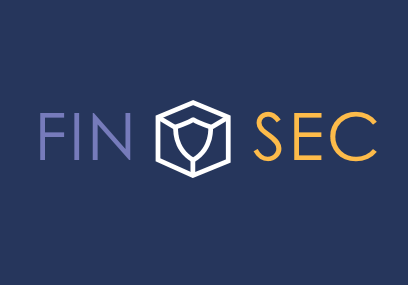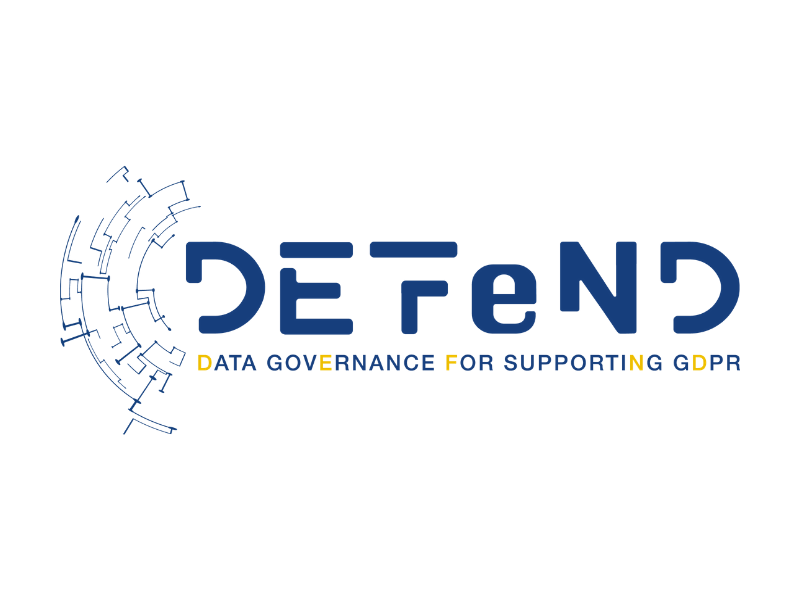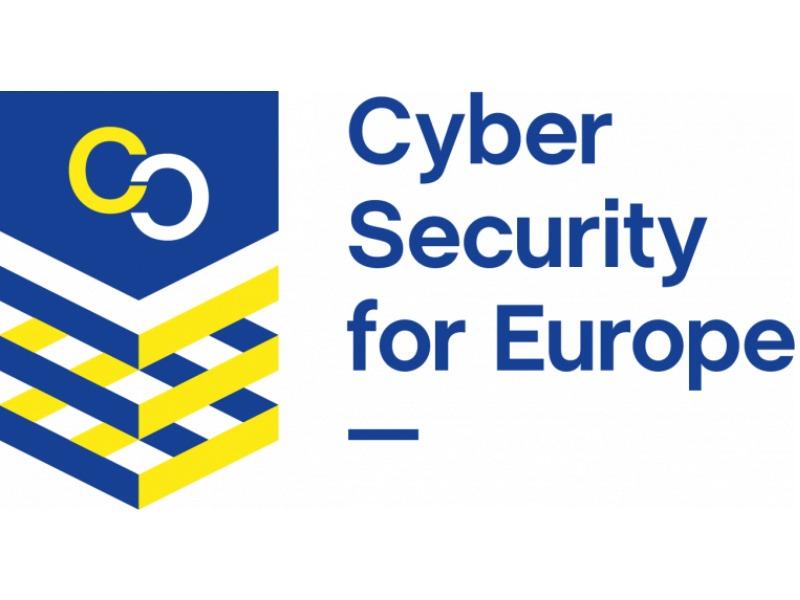
Finance

Introduction
The finance cluster of projects is focused on cybersecurity applied to the financial services sector. The Finance Sector provides a crucial backbone to the European Economy and -like many other sectors- it is increasingly dependent on ICT infrastructures, providers and their supply chain. It is a high-value target for cyber-attacks and highly regulated by jurisdictions around the world. Faced with constant intrusion attempts and other attacks, financial services organizations often find it difficult to move from a reactive cybersecurity posture to a proactive one. Achieving this goal is challenging due to the continuous expansion of the attack surface generated by new technologies that are introduced through digital innovation initiatives. Added to this complexity is the need to comply with a growing number of regulations regarding the use of financial and personal data. A stable Financial System in Europe is however, the underlying foundation for Economic stability; and the reliance on IT is now life critical for the entire Sector. Cooperation between the key actors of the Finance Sector at European level is thus urgently needed as the sector faces stronger and larger scale challenges. Under this cluster, several research projects join forces to address the cybersecurity challenges facing the sector.
Cluster Objectives
Some of the main goals of the projects included in the cluster are the following:
- Enhance information security, data privacy, and cybersecurity practice within the critical financial services sector
- Develop innovative technologies that can be useful for increasing cybersecurity (biometric identification of users, eIDAS, functional encryption…)
- Protect against illicit transactions, illegal money trafficking and fraud on FinTech and other financial e-operations
- Support evolution in payments sector ensuring confidence in digital currency and European sovereignty
- Increase trust in financial services
- Protect online commerce
- Detect and mitigate cyber-attack incidents in financial institutions
- Enhance threat intelligence and information sharing in financial sector
Who benefits?
- Financial institutions, Fintechs and Regtechs
- Businesses that carry out financial transactions
- The value chain affected by the financial sector
- Policy-makers
- Ordinary citizens, since they benefit from increasing the cybersecurity of services they consume.
Challenges
Some of the main challenges facing the sector are the following:
- The Implementation of a multitude of security and technical standards
- Building trust in Information sharing
- Different Incident reporting schemes and lines
- Crisis management in the event of cross-border incidents
- Threat intelligence gathering atboth strategic and operational level
- Regulatory harmonization and compliance
Innovations and solutions
- CONCORDIA
- CRITICAL-CHAINS
- CS-AWARE
- CYBERSEC4EUROPE
- DEFeND
- ENSURESEC
- FENTEC
- FINSEC
- INFINITECH
- SOTER
A project that pilots Cybersecurity Competence Network with leading research, technology, industrial and public competences. CONCORDIA provides excellence and leadership in technology, processes and services to establish an user-centric EU-integrated cyber security ecosystem for digital sovereignty in Europe. It enhances threat intelligence platform for financial sector and provides mechanisms for the access and use control of the data exchanged between different entities.
It develops a novel triangular accountability model and integrated framework supporting accountable, effective, accessible, fast, secure and privacy-preserving financial contracts and transactions to protect against illicit transactions, illegal money trafficking and fraud on FinTech e-operations. This is an innovative cloud-based “X-as-a Service” solution stack including several layers.
It provides a cybersecurity situational awareness solution for small- to medium-sized IT infrastructures. This solution enables detect, classify and visualise cybersecurity incidents in real-time, supporting the prevention or mitigation of cyber-attacks. The solution will be a big step towards automation of cyber incident detection, classification and visualization.
CyberSec4Europe is pilot project for a future European Cybersecurity Competence Network. The Open Banking use case seeks to address the risks and vulnerabilities posed by social engineering and malware attacks when users are seeking to obtain account information, to provide protection for bank administration security policies while overcoming weaknesses in the design and/or implementation of APIs in use, and to prevent fraud and data loss during the access to and request for payment by third parties in an open banking environment. Incident reporting pilot is focused on optimization of processes related to different compliance requirements linked to cybersecurity incidents.
The project delivered an innovative data privacy governance platform, which facilitates scoping and processing of data and data breach management and supports organisations towards GDPR compliance. The DEFeND platform enables building and analysing models following a Privacy-by-Design approach spanning over two levels, the Planning Level and the Operational Level, and across three management areas: Data Scope, Data Process and Data Breach. The DEFeND platform has been tested in operational environments in various areas, being banking one of them.
ENSURESEC: It combines different open-source cybersecurity tools for protecting the e-commerce ecosystem, with monitoring of the impact of threats in physical space and a campaign for training SMEs and citizens aimed at creating awareness and trust. It focuses on cyber-physical threats in the e-commerce ecosystem, from online retailers, though payment services, transport, and delivery stakeholders.
Its core objective is to develop new Functional Encryption (FE) as an efficient alternative to the all-or-nothing approach of traditional encryption. One of its use cases provides a digital-based currency and payments platform as a one-to-one counterpart to physical money or issued by debit and credit cards. This would ensure privacy of customers but still allowing some opportunities of taxability or auditability by governments or its taxes agencies ensuring fraud minimization.
It develops, demonstrates and brings to market an integrated, intelligent, collaborative and predictive approach to the security of critical infrastructures in the financial sector. To this end, FINSEC will introduce, implement and validate a novel reference architecture for integrated physical and cyber security of critical infrastructures, which will enable handling of dynamic, advanced and asymmetric attacks, while at the same time boosting financial organizations’ compliance to security standards and regulations.
It provides novel BigData/IoT technologies for seamless management and querying of all types of data interoperable data analytics, blockchain-based data sharing, real-time analytics, as well as libraries of advanced AI algorithms. It also provides regulatory tools incorporating various data governance capabilities and facilitating compliance to regulations (e.g., PSD2, 4AMLD, MIFiD II). One of its pilots is Real-Time Cybersecurity Analytics On Financial Transactions’ Bigdata.
It takes a holistic research approach, combining technological development with human factor-based cybersecurity training. A biometric based identification and authentication digital on-boarding platform will be developed in conjunction with a suite of training materials, designed to enhance information security, data privacy, and cybersecurity practice within the critical financial services sector.
Impacts
- Increased competitiveness of European ICT security financial products and services
- Increased resilience against widespread cybersecurity threats in finance sector
- Increased effectiveness of cybersecurity solutions through usability advancements and increased automation
- Increased trustworthy of citizens in financial transactions
- Increased regulatory and standards compliance
- Increased cybersecurity awareness
- Improved capability to monitor and analyze real-time data, for cyber-security purposes
- Improved reaction time and effectiveness rate of countermeasures implementation.
News
On the event of the adoption of the draft regulation laying down measures for a high common level of cybersecurity at the institutions, bodies, offices and agencies of the Union, the AI4HealthSec project kicked off a process to provide its opinion.
Related Projects
Resources for EU Research
Resources for SMEs
News & Events
Reports
Cyberwatching.eu has received funding from the European Union’s Horizon 2020 research and innovation programme under grant agreement No 740129. The content of this website does not represent the opinion of the European Commission, and the European Commission is not responsible for any use that might be made of such content. Privacy Policy | Disclaimer / Terms and Conditions of Use










